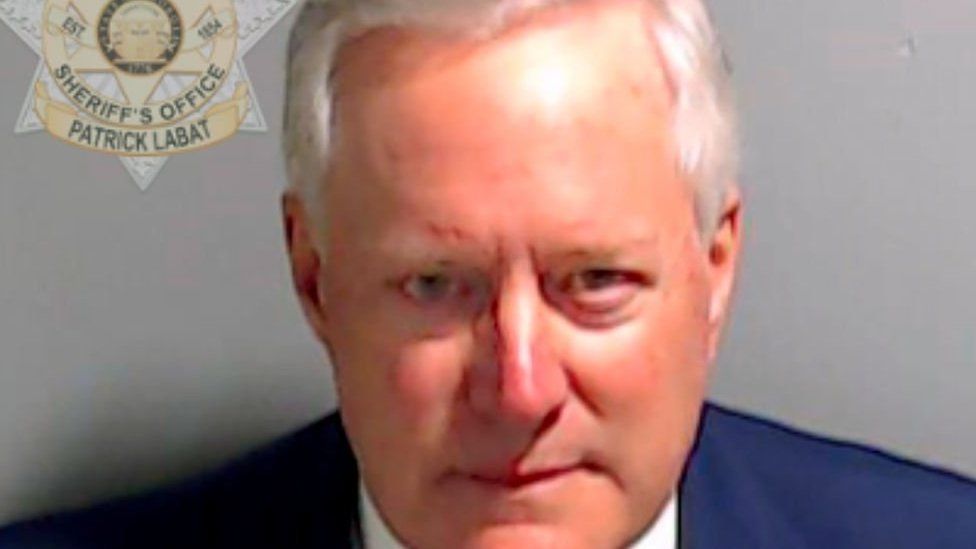-

-
-
Loading

Loading

A request from former Trump aide Mark Meadows to move his case in the Georgia election conspiracy inquiry to a federal court has been denied by a US judge. There are indications that Donald Trump and other co-defendants may also attempt to shift their cases out of Georgia state court, but this latest ruling does not bode well for such efforts. Meadows, along with Trump and 17 others, is charged with plotting to overturn Georgia's 2020 vote results. The ruling means that the case brought by Fulton County prosecutors has passed its first major test. All 19 defendants have pleaded not guilty and have surrendered at a Georgia jail for processing before being released on bail. Meadows is specifically accused of organizing calls and meetings where Trump allegedly pressured state election officials to change the vote count. He is charged with racketeering and solicitation of violation of a public officer's oath. Meadows and his lawyers argued that he was acting as a federal employee, and thus, his case should be moved to federal court. However, the judge's ruling stated that Meadows had not met the required threshold for relocation and explained that laws prohibit federal employees from participating in elections while acting in their official capacity. The ruling also mentioned that evidence supported the claim that Meadows' actions were taken on behalf of the Trump campaign to affect state election activities. Judge Steve Jones wrote that Meadows himself testified that working for the Trump campaign would be outside the scope of a White House Chief of Staff. The ruling does not affect the challenges brought by the other defendants. Meadows is expected to appeal the ruling. An additional report by the grand jury, who initially recommended charges against Trump and his co-defendants, was released by Fulton County. It revealed that the panel recommended criminal charges against a total of 39 people, while the district attorney opted not to pursue charges against 20 individuals, including one current and two former US senators.